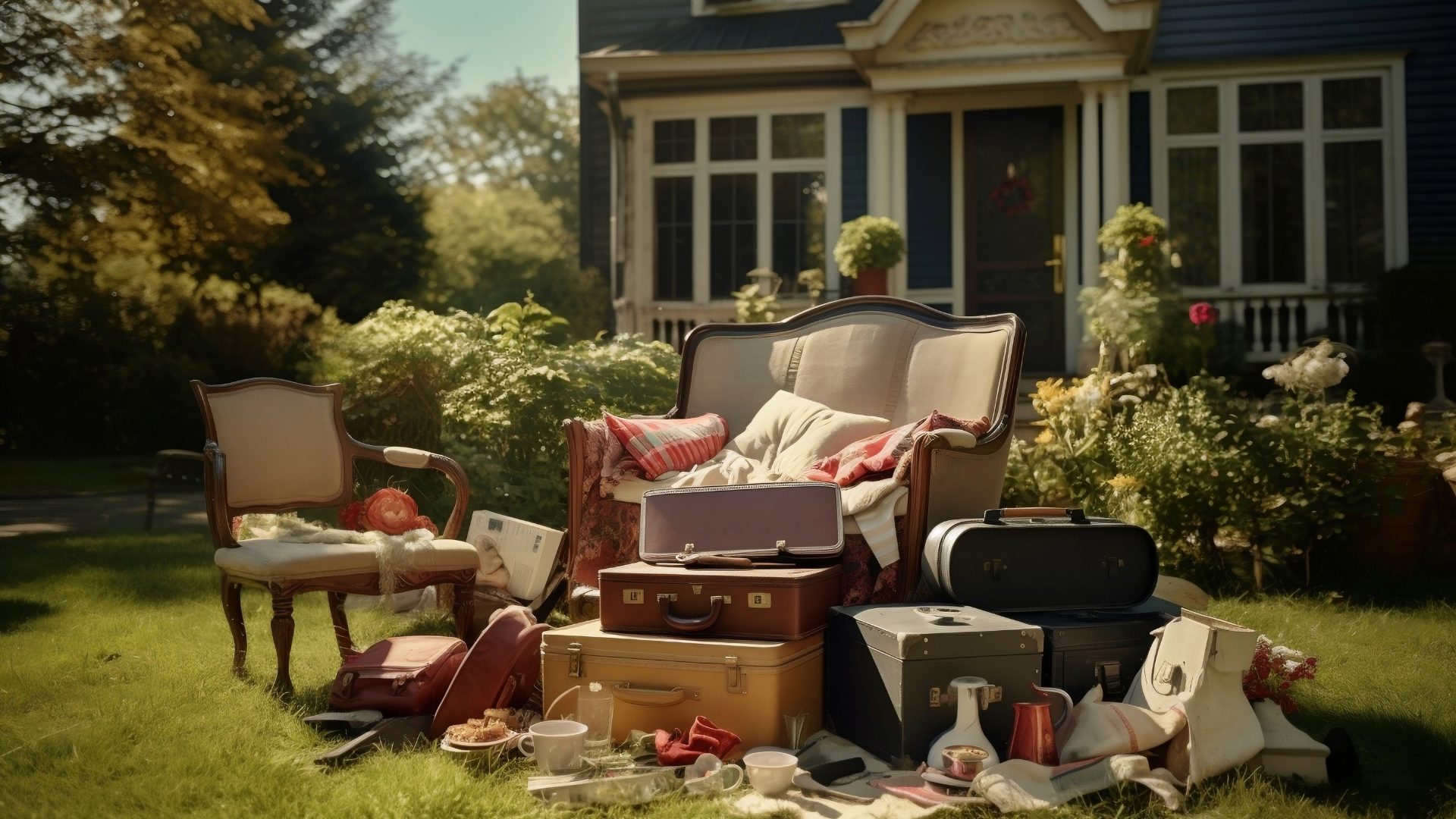Living in a cluttered and disorganized home can take a significant toll on your mental and physical well-being. Constantly navigating through piles of clutter can cause unnecessary anxiety and stress. It makes it challenging to find what you need while creating safety hazards. However, knowing where to start with a cleanout can feel overwhelming.
Using dumpsters to declutter your home can make the task less daunting. Including them in your plans to rid yourself of unwanted items not suitable for reuse or donation is a good first step toward ridding yourself of the mess.
Once you have a roll-off dumpster on site, you can systematically go through each room of your home to sort and dispose of unwanted items.
Our latest blog helps you take control of your living space to create a more inviting and functional home.
Why decluttering your home is important
Decluttering your home is a transformative process. It enhances the physical appearance of your living space while improving your peace of mind.
Dusting around countless nicknacks and other items can slow down routine maintenance on your home. Once you sort and remove some of those items, you’ll spend less time cleaning and more time enjoying life.
Let’s not forget that excessive clutter creates tripping hazards, blocks exit routes, and increases the risk of fires.
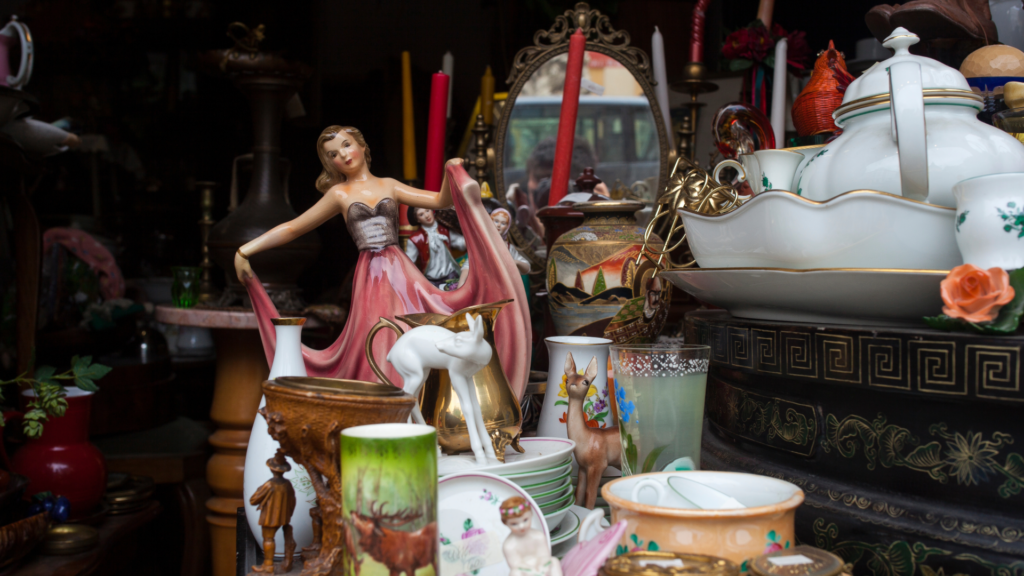
Health risks of a cluttered home
Clutter collects dust, mold, and other indoor allergens that can cause respiratory issues1, even in otherwise healthy people. For those allergic to dust mites, pet dander, or pollen, all that dust traps their worst allergens and triggers sneezing, wheezing, and itchy eyes.
Using dumpsters to declutter your home makes it easier to eliminate the allergens2 associated with poor indoor air quality.
Beyond the physical symptoms living in a cluttered home can cause, there are also documented effects3 on your mental health. Clutter leads to depression and mood disorders, and can increase insomnia in people already prone to sleeplessness.
How to know when it’s time to declutter
It’s easy to accumulate more items than you need. Some people are in denial that they have more things than they could ever possibly use. Others may know but lack the resources or motivation necessary to begin decluttering.
People who are blissfully unaware of how their clutter affects them and everyone trapped living in the situation with them may need to pay closer attention to signals that it’s time to take organization more seriously.
Surefire signs it’s time to consider using dumpsters to declutter your home:
- You waste countless hours searching for items you know you have but can’t find in the mess.
- You feel overwhelmed by the amount of clutter but powerless to do anything about it.
- You store unused or broken items for years because you can’t bear to part with them.
- You have multiple versions of the same item and keep buying more.
- You have run out of storage space in your home because you can’t part with any unused items.
- You form emotional attachments to items that have no practical purpose.
Paying close attention to these signs is the key to creating a more functional, organized, and stress-free home.
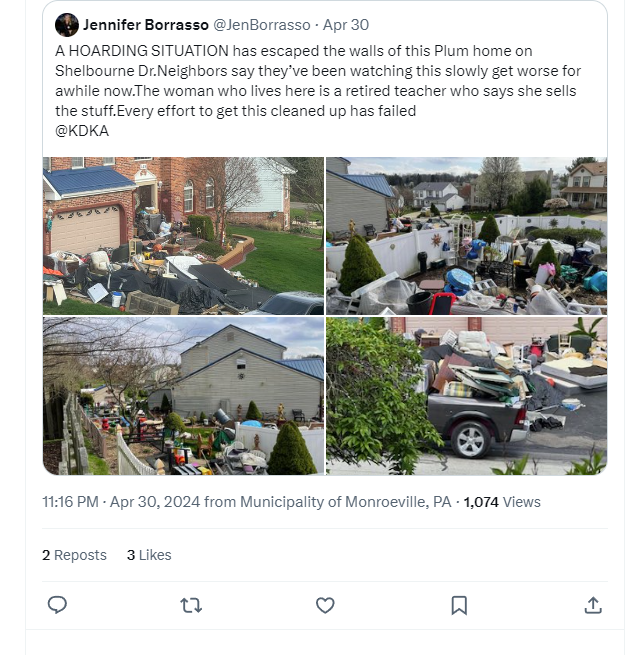
When clutter becomes a problem
When junk of all shapes and sizes invades every corner of your home, it might be time to admit that clutter has become a real problem.
Hoarding disorder4 drives some people to create cramped living conditions because they have difficulty parting with possessions. Hoarders can experience genuine distress at the thought of decluttering their homes of these precious items they feel obligated to protect.
People suffering from hoarding disorder may not recognize there’s a problem. It can be up to family and friends – even neighbors5 – to encourage them to seek professional help and begin the decluttering process.
Working with a dumpster rental company to accommodate decluttering in a hoarding situation can expedite the cleanout process by providing a safe and convenient way to dispose of bulky, unwanted items.
Not all items can go in dumpsters during decluttering. As a guideline, you should avoid putting the following materials in a roll-off dumpster rental:
- Batteries
- E-waste items (computers, monitors, printers)
- Freon-containing appliances (air conditioners, freezers, refrigerators)
- Gasoline, oil, and other liquids
- Hazardous waste
- Paints
- Televisions
- Tires
If you have hazardous items such as these, consult with the dumpster rental service provider to get suggestions on how to safely dispose of them.
Tips for decluttering every room
One of the easiest ways to tackle a decluttering project is to conduct a room-by-room inspection. Inventory the items in each room. Then, make a list of the things you want to keep, the things you want to donate, and the things you want to dispose of in your rental dumpster.
Kitchen Decluttering
Kitchen decluttering should focus on cupboards and the refrigerator. Starting with the fridge, check the expiration date on all unused food items. If you have leftovers stored that you no longer recognize (or have visible signs of degradation), toss them immediately. Make sure you understand the difference between sell-by and use-by dates to avoid throwing out food that’s still safe to consume6.
Move to the cupboards next, where you should check expiration dates on non-perishable items. Then, evaluate drawers and other storage spaces to remove items that don’t logically belong in the kitchen. Consider donating old pots, pans, and dishes you no longer use but are still in good condition.
Living Room Decluttering
Living rooms have a way of accumulating a lot of junk. Old magazines and newspapers, junk mail, and DVDs and CDs you no longer use. Donate what is appropriate for reuse – second-hand stores love DVDs and CDs in good condition – and dispose of the rest in your dumpster rental.
If you have broken furniture, it should be broken down and tossed into the dumpster. Any furniture you rarely use is ideal for donating to a shelter, free store, or second-hand store.
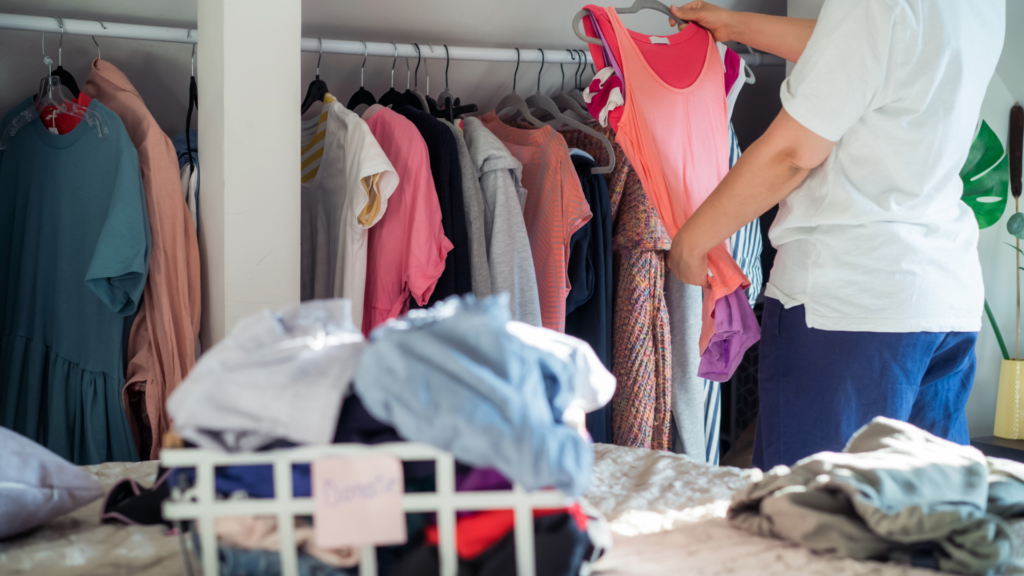
Bedroom Decluttering
If your go-to method for removing junk from your site is to shove it under your bed, you’re not alone. The out-of-sight, out-of-mind mentality is strong among most people. However, those items can collect dust and other indoor allergens, making getting a restful night’s sleep impossible.
Maybe you have so many clothes that you can no longer hang them all up or fold them all neatly into dresser drawers, so they’re tossed on the closet floor or other bedroom furniture.
To tackle this situation, sort through closets and donate or discard clothes and shoes you no longer wear. This includes decluttering under the bed.
Bathroom Decluttering
Do you have a collection of half-used toiletries in your bathroom? Start by combining like products into one bottle and recycling or disposing of the empty ones. Check makeup supplies and toss out ones that are more than a few months old.
One of the most effective ways to prevent overbuying toiletries is by investing in some organizers and shelving that allows you to clearly see what you have and what you need to replenish.
Never toss unused or expired medications into the trash or down the toilet. Some medications can end up in the water supply if not disposed of properly7.
Home Office Decluttering
Organize your paperwork into filing cabinets or other storage containers by type and date. You can also consider scanning and storing the documents digitally and then shredding the paper copies to save space.
If you have old printers, computers, and other office equipment sitting around, dispose of them properly. Most dumpster rentals for decluttering can accommodate some of this equipment. E-waste like computers, laptops, and cell phones must be disposed of another way.
Basement and Garage Decluttering
Inventory your tools and create used and unused piles. Any tools that are broken can go in the dumpster. If they are unused but still work, consider donating them.
Any old or broken furniture, sporting goods items, and other junk you’ve accumulated over the years can go in the dumpster as well.
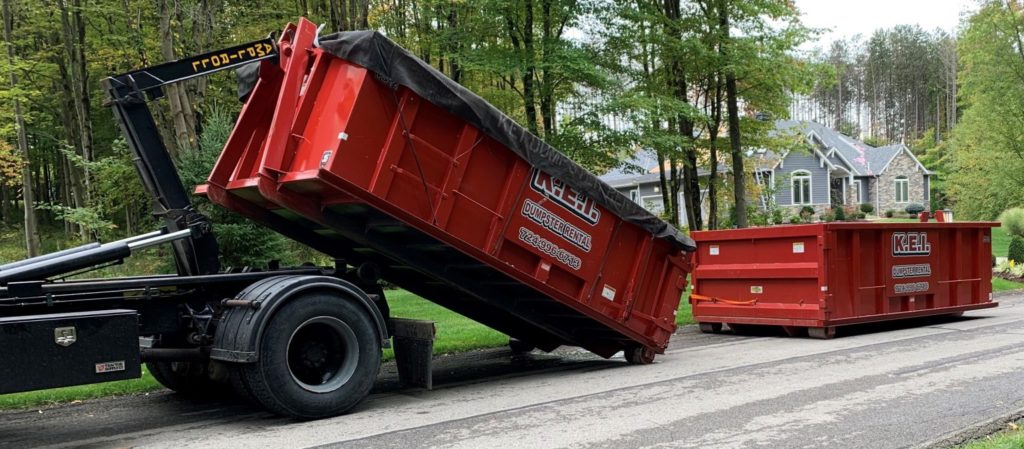
Get dumpsters for decluttering
Organizing your living space doesn’t have to stress you out when you rely on dumpsters for decluttering. They’re a convenient way to dispose of bulky items and save you the time and effort of making several trips to the local dump yourself.
Having a roll-off dumpster rental on your property serves as a visual reminder to finish your organization project before the rental period expires.
If you’re ready to get started on your home cleanout project, give KEI a call to arrange for the right-sized dumpster delivery to your home. We serve residential and commercial customers in Allegheny, Armstrong, Butler, Mercer, and Venango counties.
Sources
- How Clutter Can Affect Your Health. webmd.com. Accessed May 8, 2024.
- Indoor Allergens. aaaai.org. Accessed May 8, 2024.
- The Connection Between Cleanliness and Mental Health. verywellmind.com. Accessed May 8, 2024.
- Hoarding Disorder. mayoclinic.org. Accessed May 8, 2024.
- Severe hoarding situation has neighbors concerned, frustrated in Plum. wpxi.com. Accessed May 8, 2024.
- Food Product Dating. fsis.usda.gov. Accessed May 8, 2024.
- Unused Medicine Disposal. pastop.org. Accessed May 8, 2024.

